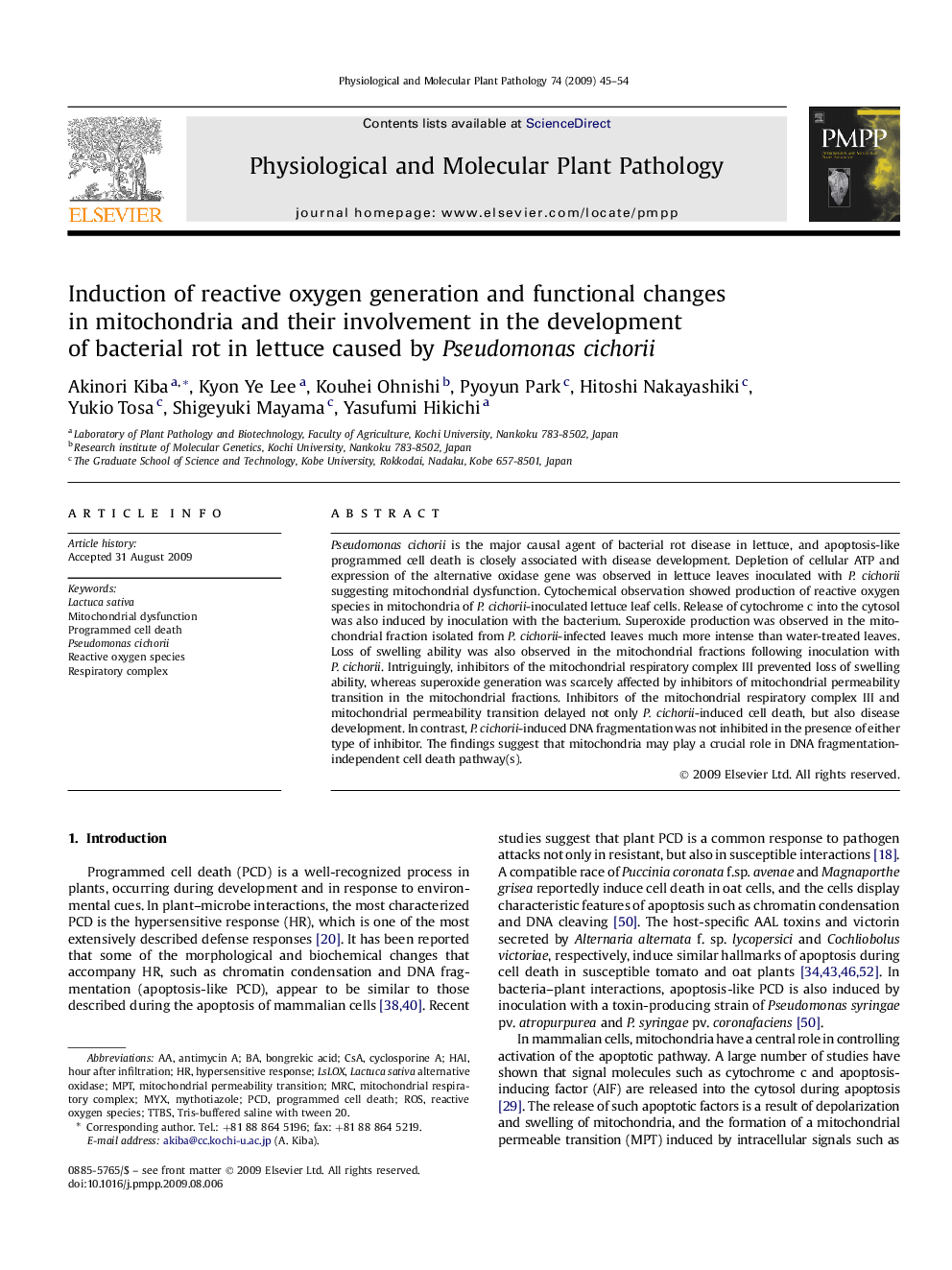| Article ID | Journal | Published Year | Pages | File Type |
|---|---|---|---|---|
| 2836568 | Physiological and Molecular Plant Pathology | 2009 | 10 Pages |
Pseudomonas cichorii is the major causal agent of bacterial rot disease in lettuce, and apoptosis-like programmed cell death is closely associated with disease development. Depletion of cellular ATP and expression of the alternative oxidase gene was observed in lettuce leaves inoculated with P. cichorii suggesting mitochondrial dysfunction. Cytochemical observation showed production of reactive oxygen species in mitochondria of P. cichorii-inoculated lettuce leaf cells. Release of cytochrome c into the cytosol was also induced by inoculation with the bacterium. Superoxide production was observed in the mitochondrial fraction isolated from P. cichorii-infected leaves much more intense than water-treated leaves. Loss of swelling ability was also observed in the mitochondrial fractions following inoculation with P. cichorii. Intriguingly, inhibitors of the mitochondrial respiratory complex III prevented loss of swelling ability, whereas superoxide generation was scarcely affected by inhibitors of mitochondrial permeability transition in the mitochondrial fractions. Inhibitors of the mitochondrial respiratory complex III and mitochondrial permeability transition delayed not only P. cichorii-induced cell death, but also disease development. In contrast, P. cichorii-induced DNA fragmentation was not inhibited in the presence of either type of inhibitor. The findings suggest that mitochondria may play a crucial role in DNA fragmentation-independent cell death pathway(s).
